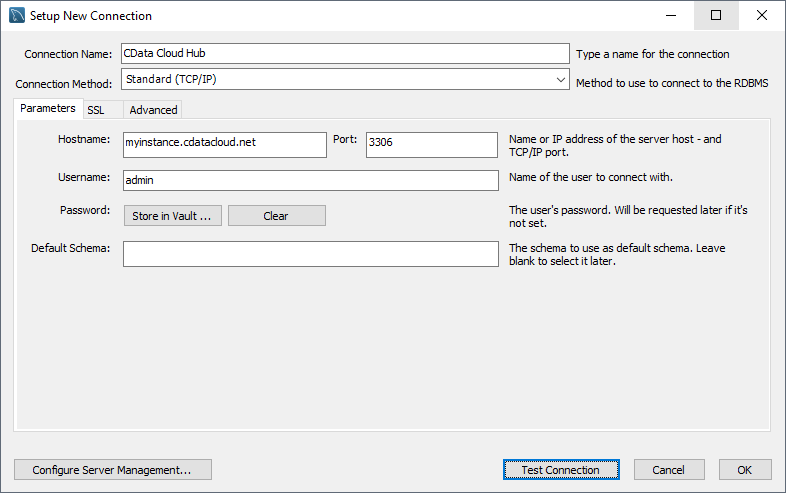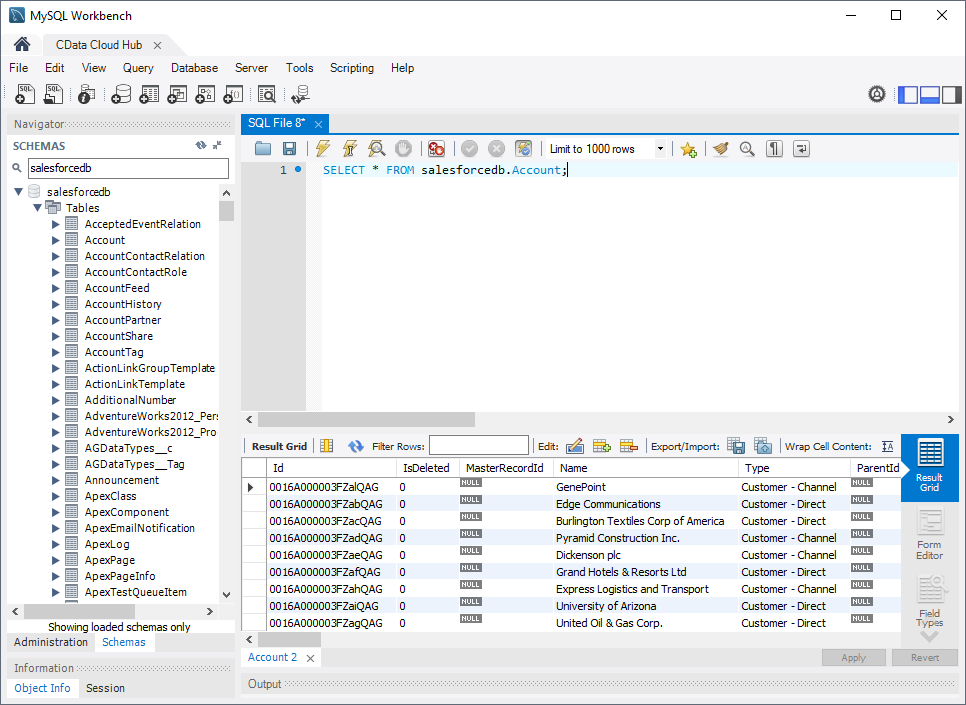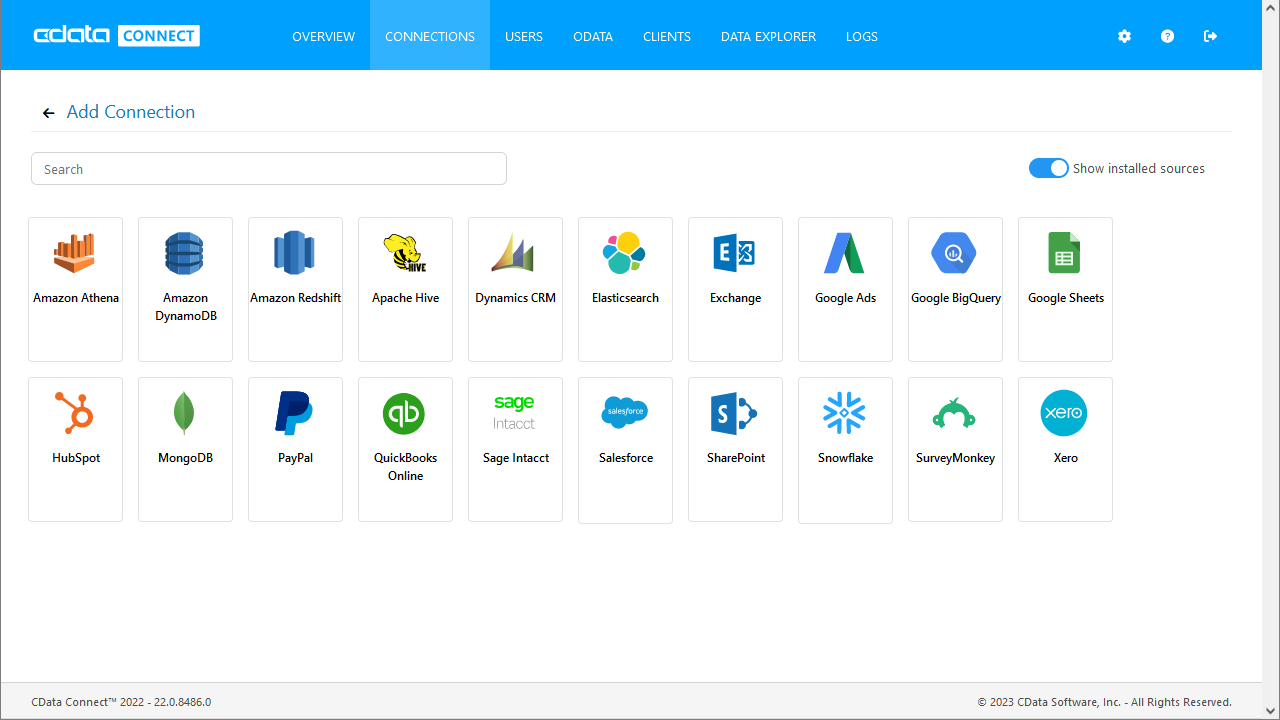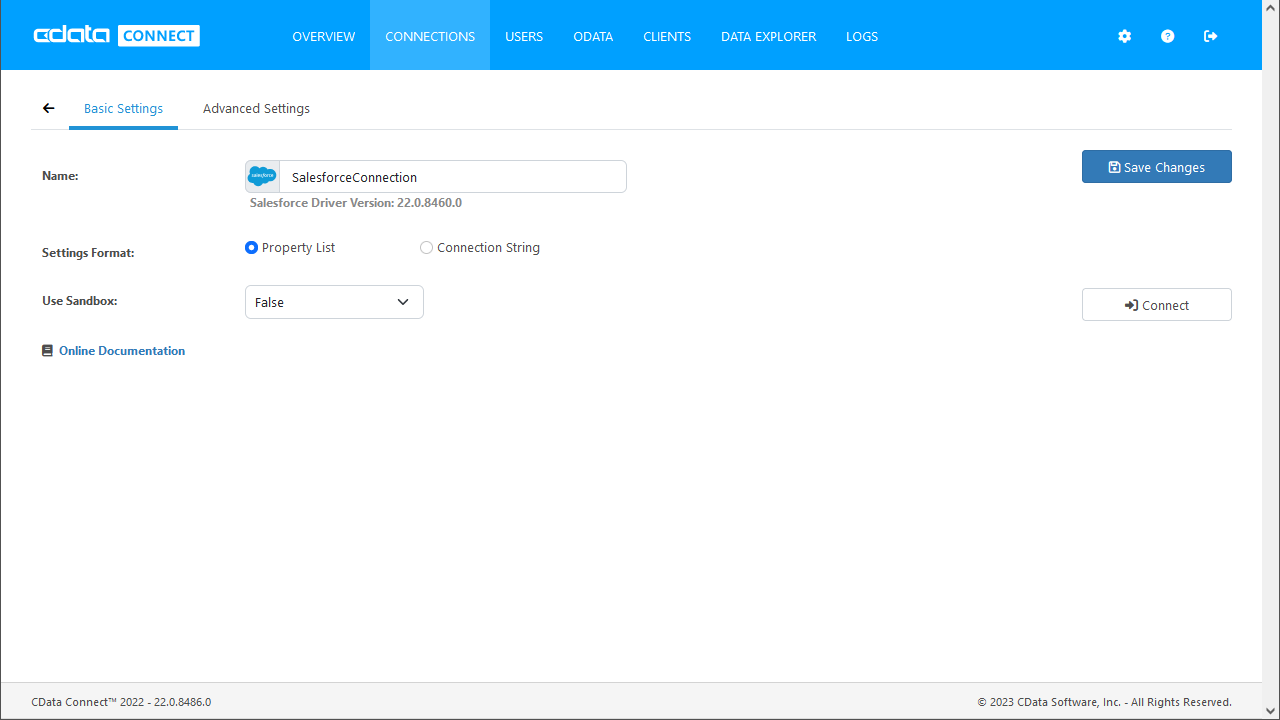Discover how a bimodal integration strategy can address the major data management challenges facing your organization today.
Get the Report →Query Aha Data in MySQL Workbench
Create a virtual MySQL database for Aha data in CData Connect (or Connect Server) and work with live Aha data in MySQL Workbench.
MySQL Workbench allows users to administer MySQL environments and gain better visibility into databases. When paired with CData Connect (on-premise or Connect Server), you get live access to Aha data as if it were a MySQL database. This article shows how to create a virtual database for Aha in Connect and work with live Aha data in MySQL Workbench.
Create a Virtual MySQL Database for Aha Data
CData Connect uses a straightforward, point-and-click interface to connect to data sources and generate APIs.
- Login to Connect and click Connections.
![Adding a connection]()
- Select "Aha" from Available Data Sources.
-
Enter the necessary authentication properties to connect to Aha.
Start by setting the Profile connection property to the location of the Aha! Profile on disk (e.g. C:\profiles\aha.apip). Next, set the ProfileSettings connection property to the connection string for Aha! (see below).
Aha! API Profile Settings
The Aha! API uses OAuth-based authentication.
You will first need to register an OAuth app with Aha!. This can be done from your Aha! account under 'Settings' > 'Personal' > 'Developer' > 'OAuth Applications'. Additionally, you will need to set the Domain, found in the domain name of your Aha account. For example if your Aha account is acmeinc.aha.io, then the Domain should be 'acmeinc'.
After setting the following in the connection string, you are ready to connect:
- AuthScheme: Set this to OAuth.
- InitiateOAuth: Set this to GETANDREFRESH. You can use InitiateOAuth to manage the process to obtain the OAuthAccessToken.
- OAuthClientId: Set this to the client_id that is specified in you app settings.
- OAuthClientSecret: Set this to the client_secret that is specified in you app settings.
- CallbackURL: Set this to the Redirect URI you specified in your app settings.
- Domain: Set this in the ProfileSettings to your Aha domain.
![Configuring a connection (SQL Server is shown).]()
- Click Save Changes
- Click Privileges -> Add and add the new user (or an existing user) with the appropriate permissions.
With the virtual database created, you are ready to connect to Aha from MySQL Workbench.
Query Aha from MySQL Workbench
The steps below outline connecting to the virtual Aha database in Connect from MySQL Workbench and issuing basic queries to work with live Aha data.
Connect to Aha through Connect
- In MySQL Workbench, click to add a new MySQL connection.
- Name the connection (CData Connect).
- Set the Hostname, Port, and Username parameters to connect to the SQL Gateway.
- Click Store in Vault to set and store the password.
- Click Test Connection to ensure the connection is configured properly and click OK.

Query Aha Data
- Open the connection you just created (CData Connect).
- Click File -> New Query Tab.
- Write a SQL query to retrieve Aha data, like SELECT * FROM ahadb.Ideas;

With access to live Aha data from MySQL Workbench, you can easily query and update Aha, just like you would a MySQL database. Request a demo of the CData Connect and start working with Aha just like a MySQL database today.








